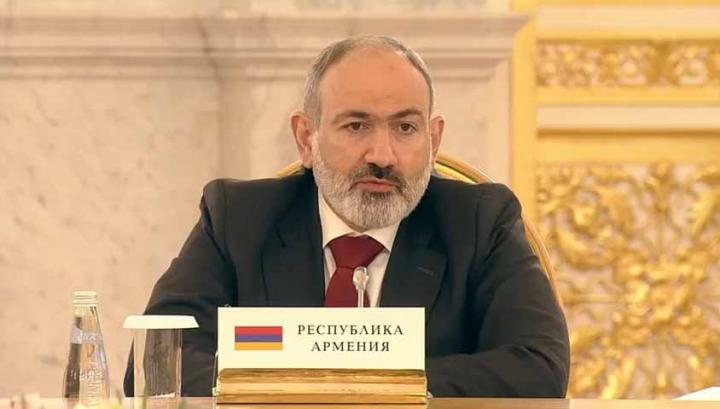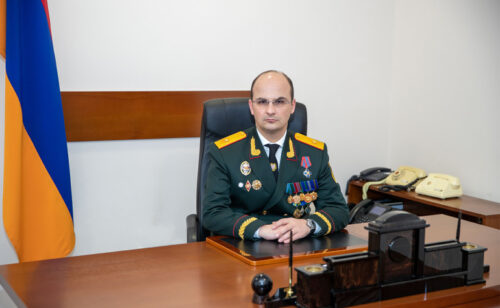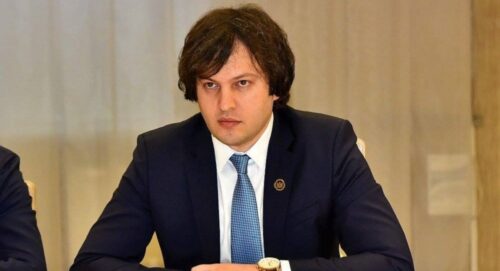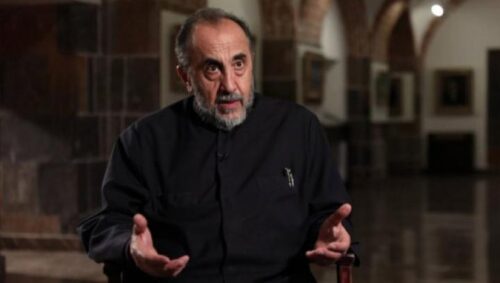
“50 shades” of the Russian visit
Nikol Pashinyan, who has been criticizing Russia for a long time and calling the Russian factor a
“threat to Armenian statehood”, voluntarily went to Moscow last week and participated in the summit of the leaders of the CIS countries. Moreover, he attended the anniversary of Vladimir Putin, congratulating and hugging the latter. In fact, Pashinyan’s recent visit to Moscow was quite remarkable and intriguing, because the Russians showed their attitude in a rather harsh and sharp way regarding Pashinyan’s and his political team’s behavior and speech of the last few years.
First, Sergey Lavrov’s formulation of the start of this “process” was rather abrupt and incomprehensible to many, when before starting the discussion with Ararat Mirzoyan, he initiated a “mini-discourse” by asking, “Are there quadrobers in Armenia and if so, how do you fight against it?” This was, in fact, a deep question.
Why exactly quadrobers? Few know about the “ideology” and “tactics” of that movement. This is a collective entity of people living in a parallel reality, where people, in this case young people (children), declare themselves to be dogs, wear dog masks, walk like dogs, while their parents and friends as their “owners”, look after them, taking them for a walk, playing with them as they play with animals. In other words, a complex and paradoxical psychological condition; and this topic is discussed before the meeting of foreign ministers; Lavrov “accidentally” mentions this phenomenon (it is clear why). In fact, this was a tender diplomatic slap, which Mirzoyan either did not understand, or simply did not want to understand the main message of his Russian counterpart.
Let’s move on. Next, it became known that on the margins of the session of the Council of Foreign Ministers of the CIS, Armenia did not join the statements regarding the “principles of ensuring security in Eurasia” and “the inadmissibility of unilateral measures in international relations.” In other words, this means that Armenia does not support Russia in condemning the unilateral sanctions applied against that country in connection with the Ukrainian war, anti-Western security architecture in Eurasia (while Ukraine was once one of the ardent supporters of all anti-Armenian actions).
Pashinyan’s part of the visit to Russia was completely absurd: playing with gadgets in shorts next to a window overlooking the State Duma building, excitedly drinking coffee at the meeting of the presidents, and, of course, riding a bicycle in Moscow. This is what we saw Pashinyan doing. And uttered no word regarding the empty words about ratifying the Rome Statute, arresting Putin, “being a prisoner of the emperor”, “becoming a guberniya”, etc.
Let us note that before Pashinyan’s visit to Moscow, there was a lot of talk about a possible tripartite meeting between Pashinyan, Putin and Aliyev, but later it became known that such a meeting would not take place, and, as the Russian side stated, it did not happen “due to the opposition from one of the parties.”—most likely, Pashinyan expressed his opposition, because Aliyev, who was the godfather of the bilateral normalization of Armenian-Azerbaijani relations, it is logical that he would not want to spoil the Russian-Azerbaijani relations and he did it through Pashinyan. That is, even if Aliyev did not want to negotiate on the Russian platform, he reached this not through his own actions. It should be noted that the Azerbaijanis play brilliantly with the Russians, doing their best not to upset them—in just a few days the BRICS summit will take place in Kazan and it may have quite promising developments, so Aliyev naturally does not want to find himself in an awkward situation.
After the official part of the meeting, Dmitry Peskov said that the issue of the “Zangezur corridor” was probably touched upon during the private conversation between Pashinyan and Putin, that is, this topic interests exclusively all geopolitical centers, and everyone is interested in the issue of unblocking the Armenian-Azerbaijani logistics communications. Who will exercise control in that sector and who will be in the most advantageous position? Basically, in the current situation, it is clearly fixed in the document of November 9 that the control will be carried out by the Russian FSB, but the U.S. constantly talks about exercising control by a custody service. Let us note that during his last “lecture” Pashinyan hinted that it is not excluded that the “corridor” may be controlled by the Russians. One thing is obvious: No matter how often Nikol Pashinyan talks about the “sovereignty of the Republic of Armenia”, “sovereign decisions on the territory of the Republic of Armenia”, it is obvious that, unfortunately, there will be foreign control over that “geopolitical vein” of the Republic of Armenia.
As for Aliyev, he explicitly sent very harsh messages to the West in the Kremlin regarding the sanctions against Azerbaijan, clearly showing his stance. In essence, Aliyev is not generating Russian or Western narratives in the current situation, but is simply trying to get a favorable position for his own state, saying that “I am here in the region.” Basically, he is trying to make the West understand that Azerbaijan has an alternative in the person of Russia, talking exclusively and specifically about the sanctions against Azerbaijan. He talked very nicely and fleetingly about the general sanctions, but the main focus was on the sanctions applied to his country. He reaffirmed the fact of common approaches with Russia.
Let us state that Aliyev has always had a balanced approach to the issue of choosing between geopolitical poles: When he has some grievances against one of the sides, he joins the opposite pole, balancing his steps both in the case of the West, Russia, and Turkey. But it is noteworthy that he never hints at the mentioned parties that he will make any geopolitical choice. We can also predict that Russia gave Aliyev a “green light”, and it is not excluded that he will give himself a free rein and take some drastic steps in the region in the near future, more specifically in Syunik.
P.S. Regardless of the photos that were published and circulated in the Russian information sector, which of course is unacceptable given that you are an Armenian—when your flag is mocked—let us mention one important fact. If Pashinyan’s PR team and image makers were so upset by the awkward positions and “angles” of the published photos, then they should pay more attention to their “boss’s” clothes, speech, behavior and inappropriate gesticulations, which is of concert to almost every rational being. In the end, let us note that, as a rule, professional journalists working at such events know what can be published and what cannot, so there is a minimal possibility that there would be glitches or photos would be published, which would be considered improper. After all, later, after an appropriate reaction, they would have been removed. But what do we have “on the ground”? Pashinyan becomes a “lion” in Armenia, criticizing and threatening everyone, trying to show them their place, but outside he submissively fulfills any instructions, adopting a completely different “tone”.
Armen Hovasapyan



